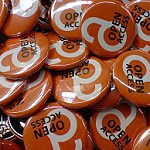Eine Kritik von Ben Kaden (@bkaden) zu Toby Green: We’ve failed: Pirate black open access is trumping green and gold and we must change our approach . In: Learned Publishing. Early View.
Messaggi di Rogue Scholar
I’m not quite sure exactly what was the reason but there was a recent flare-up of the good old “how much does it cost to publish a scholarly article” discussion recently. Partly driven by the Guardian article from last month on the history of 20th century scholarly publishing.

nnIn preparation for a presentation at the Open Access Days in Dresden, I collect information on the shares of commercial publishers in the APC-based Open Access business.nnWhen I deal with this topic, I always stumble upon the publisher Frontiers:nn Back in 2013 Nature reported “Nature Publishing Group buys into open-access publisher” and noted: “the company [Nature Publishing Group] said it was taking a majority investment”. n Wikipedia tells

nnThe Altmetrics service Altmetric.com announced yesterday that it tracks now discussions about books listed on Amazon in social media and other not primarily scientific publications.
I’ve just read Lave and Wenger’s (1991) book Situated Learning on the recommendation of Isla Gershon. Like many books I’ve been reading this was radical in its time but reads in some ways to me today as common sense. It’s actually quite hard for me to reconstruct the world view in which this was seen as a dangerously radical departure.
I had a twitter rant and a few people asked if I would convert it into a post. It also seemed worth preserving.
Yesterday Elsevier announced the launch of Chemistry Research Network, ChemRN. After the launch of BioRN ChemRN is another spin-off of SSRN, the Social Science Research Network, acquired by Elsevier in 2016. ChemRN will host not only Research Paper Series but also subscription journals.
nnElsevier’s shopping tour continues. Readers of my blog know that in April I published a provisional and incomplete list of services that are owned by Elsevier. Since then Elsevier launched the Preprint-Server BioRN, based on the infrastructure of the Social Science Research Network SSRN (purchased last year). Yesterday the Dutch publishers announced the acquisition of bepress.

nnOn August 1, 2017, 9,621 journals were listed in the Directory of Open Access Journals (DOAJ).Only 32 publishers published more than 20 of these journals and thus have a quantitatively significant influence on Open Access. PLOS can not be found among them, but still has influence – more qualitative than quantitative.nnThese 32 publishers publish 2,950 journals, which are 31% of all journals listed in the DOAJ.nnAt this date, the DOAJ
Eine Notiz von Ben Kaden (@bkaden) I Der Aufruf „Publikationsfreiheit für eine starke Bildungsrepublik“ (www.publikationsfreiheit.de) war unbestreitbar eine prägendes Ereignis der Debatten und Kontroversen vor allem aber nicht nur um das Urheberrechts-Wissensgesellschafts-Gesetz (UrhWissG). Er verfehlte allerdings, wie wir nun wissen, sein unmittelbares Ziel.